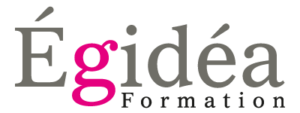Though you may not work regularly with a tax specialist year-round, you’ll want to connect with one sooner rather than later so you’re not rushed come tax time. Cash basis accounting records transactions when money changes hands. This method doesn’t record invoices or your company’s outstanding bills until they’ve been paid. To make sure you’re accounting for inventory properly, you need to stick to certain standards. These help you stay consistent in the ways you manage your finances and ensure you’re getting an accurate picture of the value of your inventory and stock. It’s important to note that while inventory is an asset, its value can fluctuate.
A free online bookkeeping course
It also helps you to reduce holding costs and minimises the risk of overstocking or understocking. FIFO assumes that the oldest items in your inventory are sold first. This method often aligns with the actual flow of goods and is preferred when prices are rising. Inventory refers to the goods and materials your business holds for resale or production. Since they have value, these items need to be accounted for just like any other aspect of your finances.
Bookkeeping 101: Basics for Beginners
This works out to be approximately $26 an hour, over $1,000 a week, or $4,600 a month. Of course, rates and salary can vary depending on the person’s education, certification, skills, years of experience, and other factors. Ultimately, the answers to these types of questions and more are found in your bookkeeping. Each of these reports should be prepared and reviewed at least monthly. You might consider creating subcategories for Google ads, Facebook ads, and print advertisements.
Bookkeeping is necessary for tax preparation.
While there are a myriad of courses available for bookkeeper education and training, a good deal of bookkeepers are self-taught since there are no required certifications needed to work as one. The skills needed to become a successful bookkeeper are often acquired through working in a career in the finance industry or even by balancing your personal budgets. Many bookkeepers hone and develop their expertise over time while others opt to http://advesti.ru/news/press/132006bestpress complete seminars, read books or take online classes. It’s never too early to take ownership of your bookkeeping policies. By following the tips and best practices outlined in this guide, you’ll be more equipped to set a strong financial foundation for future growth, profitability, and ultimate success. As with the Balance Sheet, bookkeepers are also responsible for tagging transactions under the right accounts in the Income Statement.
- However, your bookkeeper can generate internal management reports for your business.
- Purchase receipts should always be kept as proof that the purchases took place.
- If you’re just starting out, are doing your books on your own and are still in the hobby stage, single-entry is probably right for you.
- Bookkeepers can use either single-entry or double-entry bookkeeping to record financial transactions.
Why Do Small Businesses Need Bookkeeping?
The bookkeeping transactions can be recorded by hand in a journal or using a spreadsheet program like Microsoft Excel. Most businesses now use specialized bookkeeping computer programs to keep books that show their financial transactions. Bookkeepers can use either single-entry or double-entry bookkeeping to record financial transactions.
The cash flow statement shows the movement of cash related to financing activities, investing activities, and operating activities. Once everything is categorized and http://myotpusk.ru/news/newyeartur/index.html reconciled, you can prepare your financial statements. You want to make sure that none of your transactions are missing or double-counted in your bookkeeping program.
Accountant vs. Bookkeeper
Put simply, the closing inventory of one period is the same as the opening inventory at the start of the next. You’re essentially just changing what you’re referring to it as for future calculations. Whether you have an accounts team or are managing your accounting as a sole trader, you need to accurately record your inventory on a regular basis. Learn the basics of inventory accounting and get a better understanding of your financial position. These types of payments can add up to a lot of money that’s gone out the bank account that is not accounted for on the Income Statement (if you have done your Bookkeeping correctly). A question that often has been asked is “my Income Statement says I have made a profit of $10,000 – how come I don’t have $10,000 in my bank account?
You need it to do your taxes
Now, if you’re like most business owners, you might find it tedious to keep up with every little receipt so having your monthly bank statements would be a great alternative. When you’re properly tracking your business income and expenses, it makes it easier to manage your financial resources. You could go with one of dozens of popular cloud accounting solutions, like QuickBooks, Xero or Wave. However, if you don’t have a lot of bookkeeping experience (or don’t have time to learn), they could stress you out more than they help you. Especially if your accountant ends up telling you you’ve been using them incorrectly for the past year. Getting your books together and producing financial statements is the only way to gauge the financial health of your small business.
- While any competent employee can handle bookkeeping, accounting is typically handled by a licensed professional.
- Then categorize your expenses into different categories, start estimating your expected revenue for the upcoming period, and allocate your expenses accordingly.
- And technologies like optical character recognition (OCR) and bank feeds have come just short of fully automating the traditional bookkeeping process.
- Under cash accounting, you record transactions only once money has exchanged hands.
You can use these to make business decisions, but they should not be presented as audited, certified or official financial statements. A separate bank account is the first http://tekst-pesni.ru/index.php?name=engsongtext&op=view&id=201274 step in distinguishing between business and personal finances. Bookkeeping becomes more difficult when business transactions are lumped together with personal activity.



Leave a Comment